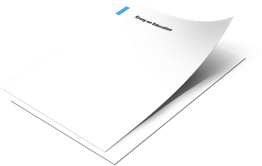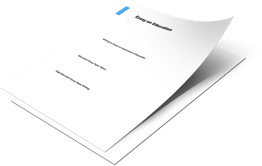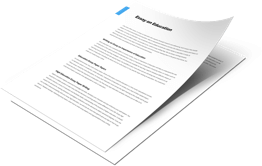Rewards
What you'll get from ESSAYBOX.ORG!
100% Original
Content
All papers are written from scratch and double-checked for originality using professional software. There are no exceptions to this rule and we strictly follow our policy.
Expert Writers
and Editors
Every discipline, from high school to graduate school, is covered. We carefully select professional freelance academic writers and editors, both ESL and ENL, to satisfy the needs of every client.
100% Satisfaction
Guarantee
Work is needed to be well-done. You are either fully satisfied with your paper, or we will give you your money back. You have a right to request a refund at any time, according to our clear and concise Money Back Policy.

The most RELIABLE essay writing service on the web!
Welcome to Essaybox.org, the Web's leading provider of quality, made-to-order academic writing. Chances are, you are new to the game of buying research and writing online. If so, you’ve come to the right essay writing service. If you’re asking, “Who can write my essay?”, we have the answer. Whether you want to talk to us over the phone or through our live chat, we'll walk you through the process. And don't worry — we won't try to sell you something you don't need. And if you buy an essay from us, you don't have to wonder about our prices. We list them below, and as you will see, the pricing is not only competitive for the highest quality papers but transparent: you will know exactly what it is you are paying for.
You get exactly what you pay for. No tricks, no bait-and-switch swindles that are part of the business plan of the other so-called "writing services" available online. By coming here, you have successfully steered clear of them.
Why EssayBox?
- Professional writers with proven academic backgrounds
- 24/7 Customer Support via email, phone, and livechat
- Fast turnaround when you need it
- Every academic discipline offered at your college or university
- Every academic level from high school to postdoc
- Clear policies and Money-Back Guarantee
- Transparent prices with no hidden charges
FREE Add-ons
- Title Page
- Bibliography page
- Outline
- Plagiarism check
- Unlimited revisions
- Formatting (APA, MLA, Chicago/Turabian etc.)
- Installments payment option
Essaybox.org can do academic research and writing in ANY of the following categories!
- Accounting
- Business
- Chemistry
- Communications
- Education
- Finance
- Health
- History
- Law
- Linguistics
- Literature
- Management
- Marketing
- Mathematics
- Medicine
- Nursing
- Physical Sciences
- Political Science
- Psychology
- Social Sciences
- Sociology
- Statistics
- Technology
- Theology
And these are just to name a few. Essaybox.org can write them at any level you wish, from high school to Ph.D. - and even postdoc!
Here at Essaybox.org, we know HOW HARD it can be...
For overworked and worn-out students to write a top-quality paper that will help them get the A that they, their instructors, and their parents want and expect. Even with the help of Google, students still have to filter reams of information — and sometimes there is too much of it out there — and then organize it into a logical and correctly formatted academic paper.
But what is next to impossible for you in the short amount of time you have until your deadline is duck soup for us. Just another day at the office. That's because essaybox.org hires only the Web's most skilled professionals. They are the answer to your question: “Who’s going to write my essay?” We pay them well and they deliver the goods. Every time. And if you should not like what you get, tell us. You'll either get another essay or you will get your money back. That's what makes essaybox.org unique in this cutthroat business.


How many pages or words do you need?

What is the topic of your essay?

MLA, APA, Chicago,
etc.

How many references are required?

When is your
deadline?


Your education paper can do better.
If you struggle to find someone to write your thesis, research work, or any other assignment, then do not spend more time on search – turn to get expert assistance for an affordable price.
We indeed know how to make the best of your endeavours. Shift your responsibilities onto your personal writer, and wait for his pro help to be delivered.
Voila!
FREQUENTLY ASKED QUESTIONS ABOUT CUSTOM WRITING SERVICES
If you’ve ever Googled, “Help me write my college essay,” you’re not alone. In fact, you’re in the majority. Students all over the world regularly request some assistance in writing their essays.
And for a good reason. Student life is challenging. It’s not just studying, the papers, and the tests, but it’s all the other things that go along with it: family challenges, illness, and relationship difficulties. And that’s in addition to the other things that make a student’s life meaningful: sports, clubs, and your social life. Yes—parties with friends are also important for mental health.
All that is to say that sometimes life builds up and forces a student to ask, “help me write my essay!” Well, we’re here for you.
In this post, you’ll find the answer to students’ most common questions about essay writing services.
CAN YOU HELP ME WRITE MY COLLEGE ESSAY?
Absolutely. Essaybox.org is an essay writing service. We help students that are really struggling by providing services that support their school achievement. Our services can help with anything from editing the paper you’ve written but could use a little TLC. Or, send us your assignment instructions and let one of our professional writers complete the assignment for you.
CAN YOU DO MY PERSONAL STATEMENT OR MY COVER LETTER?
Absolutely. Our staff is flexible and can write a range of assignments, from admissions essays to case studies to dissertation chapters. We can help you with what you need. We work in all subjects, too, so feel free to send your biology paper, art exhibition review, or psychology research report.
WHAT ARE THE ADVANTAGES OF USING YOUR SERVICE?
Good question. There are several advantages.
- Get you through a tough time. Most of our clients are looking for a bit of help during a time when they are particularly struggling. We can lift some of the burdens on that brutal semester while you manage the rest of your life.
- Increase your learning. Many of our clients tell us that the papers we write help them understand the subject matter better. Don’t be surprised if you read one of our papers and think, “This is new to me” or, “That never occurred to me!”
- Good Grades. While we can’t guarantee a particular grade, all the papers we write are high quality. You’ll be satisfied, or you’ll get your money back.
WILL MY PAPER BE UNIQUE?
Absolutely yes. We pass all papers through a plagiarism detector to ensure they’re entirely original content.
WILL I GET AN A+ FOR MY PAPER?
Unfortunately, we cannot guarantee you the highest grade since the assignment of marks is subjective and depends on your professor or teacher. We can ensure that you receive a high-quality essay that meets all the assignment instructions. Very high grades are typical for our papers.
WHO WILL HELP WRITE MY ESSAY?
All our writers are fully qualified writing professionals. They all have undergraduate degrees. Each of them has to pass rigorous writing tasks before they can be hired. We provide high-quality services.
WILL MY PAPER BE DOUBLE-CHECKED?
There is usually only one writer working on your order, but there is also an editor that reads it when it is finished to make sure the work meets our high standards. This is how we are different from other companies and how we make sure you get a good paper.
HOW DOES OUR SERVICE WORK?
It’s pretty simple. You send us the assignment instructions and the due date. We find someone with skills that match your needs. They write the assignment, we edit it, and then send it to you.
CAN I GET MY MONEY BACK?
Yes. While we can’t guarantee you’ll get an A, we can guarantee that you’ll be satisfied. Our money-back guarantee covers you in case you want to cancel your order, accidentally make a double payment, or in case no writer has the expertise for your assignment (this is rare!). Further, if your order is late, or you’re unhappy with the essay quality, you are entitled to a free revision or your money back. Please see our website for details.
DO YOU PROTECT ME AND MY PRIVACY?
Absolutely. Communication with our company and with our staff is completely anonymous. Further, payments are secured and processed on a secure server.
CHECK US OUT
We’re proud of our service and the quality of work we provide. If you struggle to write your paper, get in touch, and let’s see how we can help you.”




